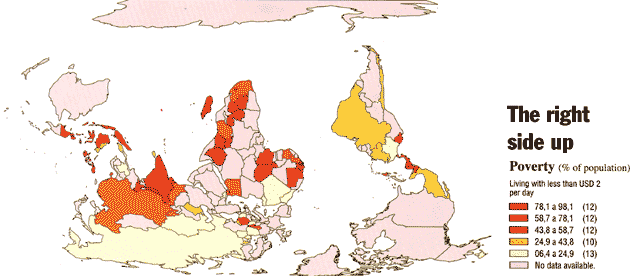 HYDERABAD - Unlike beer-guzzling boors on the Kathmandu-New Delhi shuttle, passengers aboard the evening Airbus to Hyderabad are a subdued lot.
HYDERABAD - Unlike beer-guzzling boors on the Kathmandu-New Delhi shuttle, passengers aboard the evening Airbus to Hyderabad are a subdued lot.
Armed with laptops, Samsung phones and the latest paperback on leadership, these are a new breed of cyber-jetset Indians. They seldom raise their voices, they don't bother the stewardess and they obey all the rules about not using electronic devices during takeoff and landing. But you should see them as soon as they deplane: barking into their phones and jostling to yank their luggage out of the turnstile and rush off to keep appointments delayed by fog in Delhi.
Impressed by the cleanliness of the terminal building in Cyberabad, Dr Prakash Sharan Mahat praises the leadership of Andhra Pradesh Chief Minister Chandrababu Naidu. The organisation that administers airports-Airport Authority of India-is a central government enterprise, and Naidu has nothing to do with the efficiency of services that is being attributed to him. But then Dr Mahat is celebrating the persona of the most media-savvy politician in South Asia today.
Naidu has become such an icon that the public attributes all successes in his state to him, while all failures are flung at the central government in New Delhi. That's the advantage of being associated with the World Bank, and that's the benefit of relentlessly cultivating image-builders in the media.
For the globalised citizens-in-transit of Third World countries, it's de rigueur to sing hossanahs to this poster boy of the Bretten Woods institutions. Non-compliance with this undeclared norm can lead to exclusion from the consultancy gravy train, so even Delhi-based academics like Dr Beena Agrawal find it expedient to complement the Telugu chieftain as often as they can.
In order to remain in the good books of the Washington Consensus, officialdom in developing countries doesn't miss a chance to depict Cyberbabu in a favourable light. To be fair, Naidu does have notable achievements to his credit. By leveraging his influence in New Delhi's ruling coalition-the National Democratic Alliance, of which his Telugu Desham Party is a constituent-he has repeatedly succeeded in getting more than a fair share of the central grants cake for his state. Some of this is reflected in the newly installed cats' eyes on the lane dividers of freshly paved city roads.
Despite the warnings of free-market fundamentalists from home and abroad, Naidu has consistently refused to disband mid-day meals scheme for the school children. But these are symbolic acts. When it comes to setting economic policies, the defender of Telugu pride has no qualms in quietly surrendering to the wishes of the international creditors who are so generous to him.
The most glaring contradiction in Andhra Pradesh, and one which is linked to these policies, is that this Indian state which has jumped into the globalisation bandwagon more enthusiastically than any other is also the hotbed of India's own Maoist movement.
So far, the state government has opted for a ruthless suppression of the armed rebellion. Naidu is too busy hitching his wagons to the IT revolution to address the more pressing issues of nearly half the state population living below the poverty line. Or, maybe his strategy is that economic growth will be the locomotive that will pull Andhra out of poverty.
The media in Hyderabad is too pre-occupied with the international free market to notice that 1,200 Asian activists have descended on their capital for a social forum. Walden Bello, Asish Nandy, Praful Bidwai, and Vandana Shiva are all there on the grounds of Nizam College, but otherwise this is an affair of the socially excluded: anti-nuclear peace activists, champions of the Dalit rights, right-to-information campaigners. Bare-foot painter M F Husain does manage to get into the papers, otherwise even N Ram of The Hindu is unsuccessful in getting enough coverage for the event in his own paper. Satellite news channels scan the event, but keep their focus on the NRI meet in New Delhi.
The Nepali participation is impressive. A high-powered delegation of the Deuba faction of the Nepali Congress includes Pradip Giri, Bimalendra Nidhi and Chitralekha Yadav. Academic Krishna Khanal, researcher Hari Roka and journalist Shyam Shrestha represent a rainbow of political views. But even more conspicuous is the Dalit contingent brought to the event by Action Aid. Two seminars have been dedicated entirely to discuss Nepal. The favourite quote of most Nepali participant is King Gyanendra's declaration about the international free market at the Biratnagar public rally happening at the same time.
Asian Social Forum is a precursor of World Social Forum to be held later this month at Porto Alegre in Brazil. Different programmes come up with their own declarations. But at the end of the day, there is emptiness-how can such events contribute to the formation of Asian solidarity, that too among the weaker sections of society?
All such events end up being fashion parades of the social elite. Real change requires commitment to the cause, and continuity in championing come what may. These attributes are still needed as much in Cyberabad as anywhere else in South Asia. Within a few hours drive from the posh Banjara Hills, children (yes children) of upper caste refuse to eat the food cooked by Dalit women. When inequality in society is so deep rooted, is another world really possible?
Ask any of the participants of the Asian Social Forum, and the answer would invariably be: if another world isn't possible this one won't last. We owe it to ourselves to build a more just, equitable and tolerant society. Only that will ensure progress and prosperity, unbridled globalisation just widens the gap.




